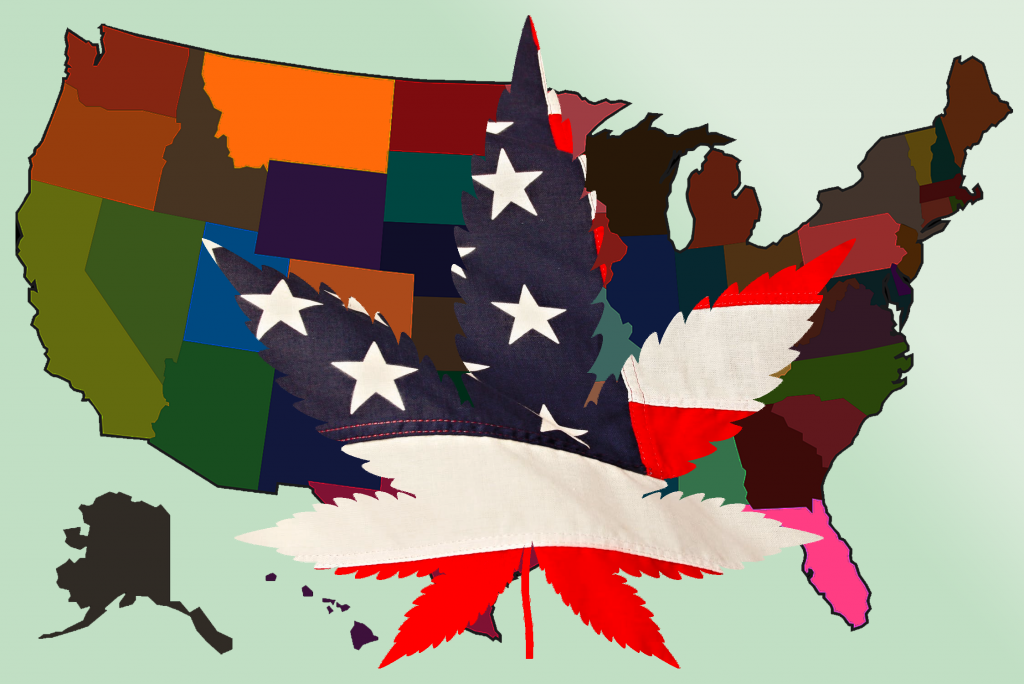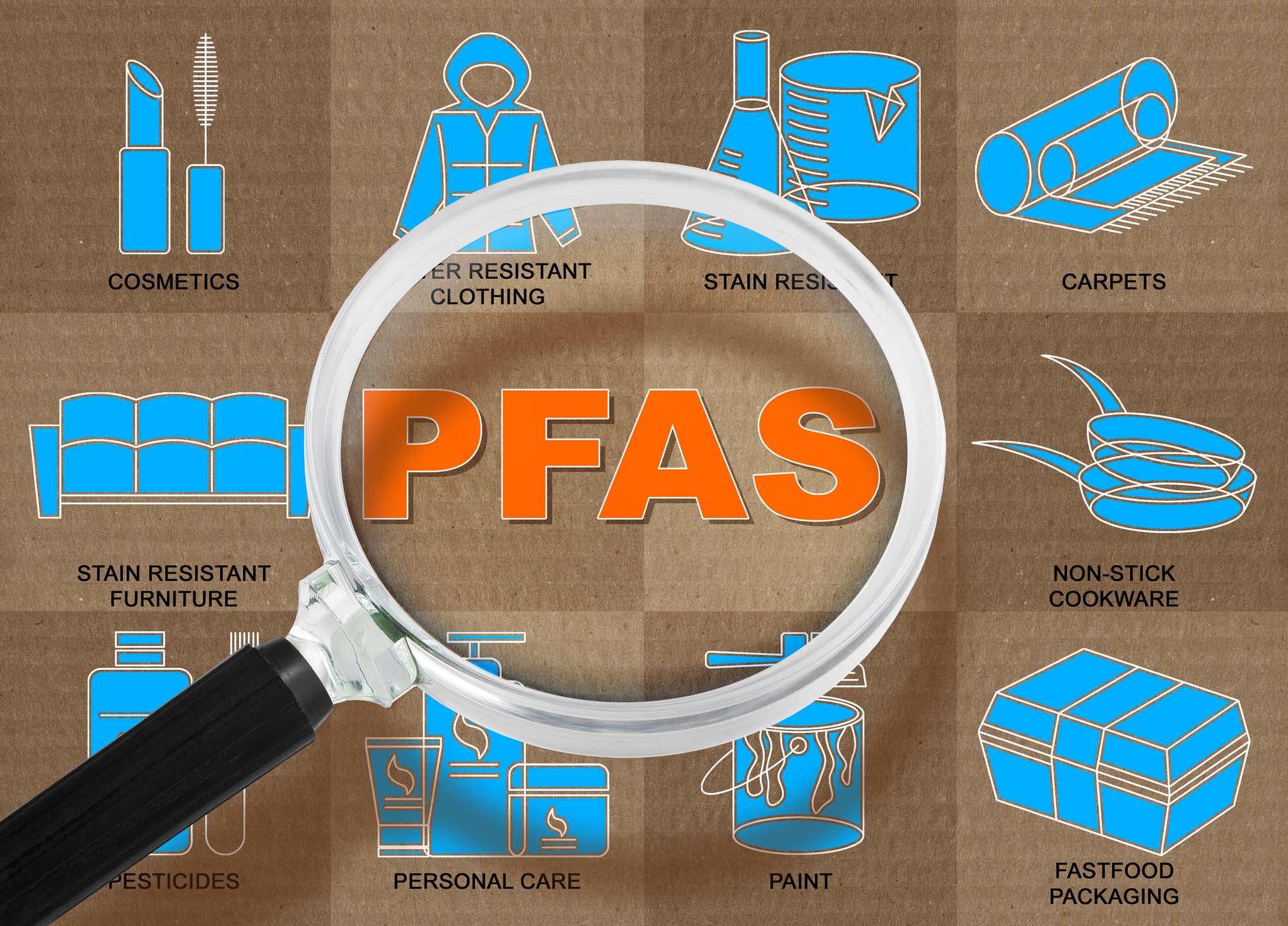
Last week, DMGS looked at different ballot measures across the country, including two states with marijuana-related measures. With more states looking at legalizing adult-use recreational marijuana or medical marijuana, some are doing so via legislation enacted by lawmakers, and others via ballot measures. Thirty-three states have legalized medical marijuana, and 11 have legalized recreational adult-use marijuana. At the federal level, the U.S. House of Representatives had also planned to vote on legislation to decriminalize marijuana. However, lawmakers appear to be delaying consideration of the Marijuana Opportunity Reinvestment and Expungement (MORE) Act.
Voters in five states have the opportunity this year to approve new medical marijuana laws, recreational marijuana laws, or both. In 2016, marijuana legalization measures passed in eight out of nine states. Could marijuana legalization achieve similar success this November?
New Jersey
Public Question No. 1 in New Jersey involves legalizing recreational marijuana for those over the age of 21. The Legislature has failed to pass previous efforts to legalize recreational marijuana. If voters approve, the Cannabis Regulatory Commission (created in 2019) would oversee the new adult cannabis market, and all retail sales of cannabis products would be subject to the state’s sales tax. A municipality could also pass a local ordinance to charge a local tax if authorized by lawmakers.
Montana
In Montana, Ballot Issue #14, I-190, would legalize the possession and use of limited amounts of marijuana for adults over 21 years old. Another measure will also appear on the ballot in addition to I-190 – Constitutional Initiative No. 118 (CI-118). Under current Montana law, a person 18 years of age or older is considered an adult, except that the Legislature or people by initiative may establish the legal age of purchasing, consuming, or possessing alcoholic beverages. CI-118 would amend the state constitution to allow the Legislature or the people, by initiative, to establish the legal age for purchasing, consuming, or purchasing marijuana. The Montana Constitution would be amended to read:
“Section 14. Adult Rights. A person 18 years of age or older is an adult for all purposes, except that the Legislature or the people by initiative may establish the legal age for purchasing, consuming, or possessing alcoholic beverages and marijuana.”
South Dakota
South Dakota voters will have two separate ballot measures to vote on in November: Initiated Measure 26 and Constitutional Amendment A. Initiated Measure 26 would legalize the medical use of marijuana by qualifying patients, including minors. Under the measure, medical use includes the use, delivery, manufacture, and cultivation (for state residents) of marijuana and marijuana-based products to treat or alleviate debilitating medical conditions certified by the patients’ practitioners. Patients would have to get a registration card from the South Dakota Department of Health, and cardholders would be allowed to possess 3 ounces of marijuana and additional amounts of marijuana products. Further, the cardholder may possess a minimum of 3 plants, in addition to the marijuana and products derived from those plants, if allowed to grow marijuana plants.
Constitutional Amendment A would legalize the possession, use, transport, and distribution of marijuana and marijuana paraphernalia by those over the age of 21. The amendment would permit the possession and distribution of one ounce or less of marijuana. Individuals could also possess marijuana plants and marijuana produced from such plants under certain conditions. The South Dakota Department of Revenue would be tasked with issuing marijuana-related licenses for commercial cultivators and manufacturers, testing facilities, wholesalers, and retailers. Further, local governments would be allowed to regulate or ban the establishment of licensees within their jurisdictions.
According to the South Dakota Secretary of State, an initiated measure currently requires 16,961 valid signatures to qualify for the ballot. A random sample found 74.65% of the petition signatures to be valid (25,000 signatures) for Initiated Measure 26. Likewise, a constitutional amendment requires 33,921 valid signatures in order to qualify for the ballot. The Secretary of State’s office conducted a random sample that found 68.74% of petition signatures to be valid (36,000).
The South Dakota Legislative Research Council projects that legal cannabis would net tax revenues of $355,705 in FY 2021 and $29.37 million by FY 2024. The revenues would be from licensing fees, sales tax, and a 15% excise tax. 50% of net revenues would be distributed by the state annually to public schools and the other 50% to the general fund. The Council also noted that incarceration costs would decrease.
The Council’s Fiscal Note for Initiated Measure 26 estimates that legal cannabis for medical use would have an initial cost of $677,309 for the state, and once the program becomes operational, it is expected program revenues would cover program costs for a net to zero.
Arizona
Proposition 207 in Arizona would allow limited marijuana possession, use, and cultivation by those over the age of 21. Individuals would be allowed to use, possess, or transfer up to one ounce of marijuana and cultivate for personal use no more than six marijuana plants at a primary residence. The measure would also ban smoking marijuana in public places and open spaces, amend criminal classifications and penalties for marijuana possession and use, and allow the retail sale of marijuana at licensed establishments. Courts would also be allowed to vacate and expunge certain marijuana arrests, charges, adjudications, convictions, or sentences.
A 16% excise tax would be imposed on marijuana sales, which would fund community colleges, infrastructure, public safety, and public health programs. Smart and Safe Arizona estimates Prop 207, the Smart & Safety Act, would generate $3 billion in new revenue during the first 10 years. The measure needed 237,645 signatures to be placed on the ballot and achieved 255,087 valid signatures.
Mississippi
In Mississippi, voters can address important constitutional issues via ballot initiatives instead of lawmaker action. For an initiate measure to be placed on the ballot, a minimum of 106,190 certified signatures must be gathered with at least 21,238 certified signatures from each of the five congressional districts as they existed in 2000. An initiative must receive not only a majority of the total votes cast for that particular initiative; it must also receive more than 40% of the total votes cast in that particular election. More than 214,000 signatures were submitted in the fall of 2019 to get Initiative 65 placed on the ballot. With this method, the Legislature was given four months to review, amend, adopt, or reject the initiative. Lawmakers then passed House Concurrent Resolution 39, proposing an alternative legislative measure to Initiative Measure 65.
Initiative 65 will appear before voters in November. This initiative would amend the Mississippi Constitution to allow qualified patients with debilitating medical conditions certified by Mississippi licensed physicians to use medical marijuana. It is anticipated that the implementation of a medical marijuana program would generate $6 million in special fund revenue on an annual basis. The Department of Health would use three sources of operating revenue: fee for ID cards, a fee for treatment center licenses, and a charge that the Department may assess at the point of the retail sale of medical marijuana.
Thanks to Mississippi state lawmakers, voters will concurrently see Alternative Measure 65A on the ballot. This alternative measure is different from Initiative 65. It requires the appropriate state agency to consult with medical professionals to develop a safe, effective medical marijuana program, and according to proponents, has safeguards to ensure it will be limited to legitimate medical uses. Initiative 65 would put a medical marijuana program into the state’s constitution, while Alternative 65A gives the Legislature and state agencies the ability to update the program and respond to advances in knowledge of medical marijuana. The alternative proposal:
- Is limited to qualified persons with debilitating medical conditions;
- Allows terminal patients to smoke marijuana while non-terminal patients can use other forms like pills;
- Limits the number of state-licensed medical marijuana manufacturers to prevent flooding the market;
- Allows only pharmaceutical quality marijuana;
- Restricts marijuana treatment to state-licensed healthcare providers; and
- Requires tracking and assessment of patient outcomes to determine marijuana treatment and effectiveness.
The Mississippi Legislative Budget Office expects the cost to the state for the first year of implementation of Initiative 65 to be over $11 million. The projected expenses for the first year of implementation of a medical marijuana program are over $24 million. Expenses are anticipated to drop to $15 million after the first year of the state’s medical-marijuana program. Overall, annual revenue streams are expected to approach $10.6 million, all of which must be used to support the state marijuana program. The Budget Office further found that the cost of revenue impact associated with Alternative 65A to be undeterminable, as many of the details would have to be determined by lawmakers down the line.
Failed measures
What measures failed to make ballots this year?
Not every effort to get an issue on a ballot succeeds. Legal marijuana advocates tried to get the issue on even more ballots this year, but they failed.
Oklahoma
State Question 807 in Oklahoma would have legalized, regulated, and taxed marijuana for those over the age of 21. However, the initiative proponents withdrew the measure, arguing that collecting the over 177,000 signatures to qualify for the ballot was unfeasible due to the COVID-19 pandemic. Specifically, the measure would have:
- Established quantity limits, safety standards, and other restrictions;
- Maintained prohibitions on impaired driving and distribution to, or use by, those under 21;
- Not affect employers’ ability to restrict marijuana use by employees;
- Allowed for property owners to generally restrict marijuana on their property;
- Required the Oklahoma Marijuana Authority to license, regulate, and administer the article;
- Permitted municipalities, upon popular vote, to limit or prohibit retail licenses;
- Imposed a 15% excise tax on sales (not applicable to medical marijuana) to fund the Authority, localities where sales occur, schools (for programs to prevent substance abuse and improve student retention and performance), and drug-addicted treatment programs; and
- Provided a judicial process for people to seek modification, reversal, re-designation, or expungement of certain prior marijuana-related judgments and sentences.
North Dakota
A campaign to get marijuana legalization on the North Dakota ballot was suspended due to the COVID-19 pandemic. Various outdoor events that would have been a prime target for signatures were canceled due to the pandemic, leaving organizers with little options. Legalize ND needed over 13,000 valid signatures by July 6 to qualify for the ballot, but instead is shifting its efforts to the 2022 primary election.
While efforts to get a marijuana question on the ballot failed this year, advocates could get Initiated Statutory Measure #3 on the ballot in the 2018 election. The measure would have removed hashish, marijuana, and THC from the list of schedule I controlled substances, would have decriminalized the possession of marijuana by an individual over the age of 21, and provide the same penalty associated with a minor in possession of alcohol for the possession of marijuana by someone under 21 years old. Further, the measure would have required anyone with an illegitimate drug conviction to have his or her records expunged and sealed automatically. This ballot measure failed, with 59.45% voting in opposition.
Nebraska
182,000 signatures were gathered to get medical marijuana on the Nebraska ballot. 121,000 valid signatures were required. However, the Nebraska Supreme Court voted to block the medical marijuana question from the ballot, arguing the question contained more than one subject and that voters should be allowed to decide on the issue of medicinal cannabis use alone. Nebraska state lawmakers have rejected numerous medical marijuana bills since 2010.
Florida
In the Sunshine State, the Make it Legal Florida political committee spent $7.7 million to get a marijuana question on the 2020 ballot. The proposal would have allowed adults over the age of 21 to have, use, purchase, and transport up to 2.5 ounces of marijuana and paraphernalia. The proposal would have also given existing medical marijuana treatment centers the ability to sell marijuana and related accessories if clearly labeled and enclosed in childproof packaging. The group ended its efforts to get the proposal placed on the 2020 ballot, citing a new election law that they claimed placed undue restrictions on the ballot initiative process. Make It Legal Florida is now attempting to get their proposal placed on the 2022 ballot.
Latest News
Photo credit: iStock.com/Motortion In 2022, the U.S. Supreme Court decision in Dobbs v. Jackson Women's Health Organization overruled a federal constitutional guarantee of freedom to abortion. Since then, legislation concerning reproductive healthcare—including access to [...]
Photo credit: iStock.com/Francesco Scatena Recent trends across the country have seen several states introducing bills to ban certain chemicals, particularly perfluoroalkyl and polyfluoroalkyl substances (PFAS), in consumer products. According to the EPA, PFAS are persistent [...]
In our latest episode of the Back in Session podcast, we had the pleasure of hosting Pennsylvania State Representative Tim O'Neal. Our conversation covered a range of topics from the recent state budget to election [...]
Photo credit: iStock.com/naturalbox The debate over raw milk legislation has intensified in 2024, with several states introducing or passing bills that address the sale and distribution of unpasteurized dairy products. Raw milk has not undergone [...]






Stay In Touch